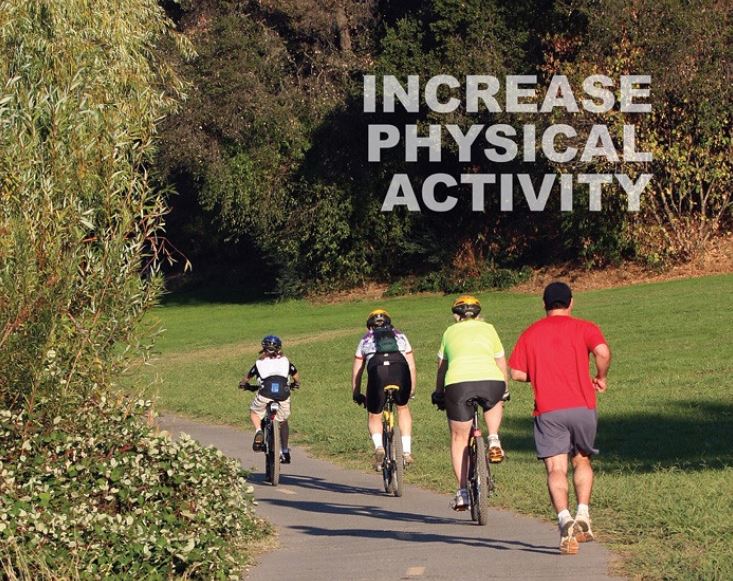
EXTOD Adults with Type 1 Diabetes: delivered by EXTOD and organised by SBK Healthcare. This unique forum has been created to provide interactive tools, clinical cases, shared learning and problem/solution-based tasks for adults who exercise regularly and would like support with managing their diabetes.
Please click on the EXTOD courses tab for details of further courses available.
Case study led workshops, practical learning and useful resources
Delivered by EXTOD, this one day event is designed for adults with T1D who are looking to manage their exercise choices confidently and safely.
This dedicated day will equp all participants with practical tools and techniques needed to overcome diabetes and exercise challenges.
Featuring case study led workshops, practical learning and useful resources
If you would like to manage your exercise choices confidently and safely, then this dedicated day will equip you with practical tools and techniques to overcome your diabetes and exercise challenges. Book your place and benefit from:
- Understanding the effects of different types of exercise on blood glucose levels
- Applying the rule of threes for managing glucose around exercise
- Optimising on the tips and tricks with nutrition and exercise
- Identifying how your diabetes technology will support your exercise safely
- Practical engagement with the strategies to plan for exercise
A unique opportunity to build your understanding of diabetes and exercise
In this engaging environment, you will be able to pose your questions to the experts, take part in useful discussions and benefit from practical group learning. In just one day, you will:
- Receive invaluable guidance on glucose control through diet, exercise and insulin changes
- Develop your understanding of the continuous glucose monitors the pump or closed loop you use
- Network with fellow people with T1D who exercise to share your challenges and solutions
- Leave the day armed with online materials, confident in your ability to safely undertake exercise
Meet your sponsors
SBK Healthcare would like to thank Abbott, Medtronic, Medtrum and Insulet, maker of Omnipod for sponsoring this unique forum.
Invitation to sponsor
This event is a great opportunity for providers of diabetes technology and treatments to support adults with T1D. To find out more about all the engagement and branding opportunities available in the full sponsorship package, please email Sarah Kemm or call Sarah on 01732 897788.
With thanks to Breakthrough T1D for supporting this educational conference:

Breakthrough T1D, the leading global type 1 diabetes charity, works every day to help people live better with the condition, prevent people ever developing it and one day, find cures.
Prior to the course attendees will be sent links to a few videos to prepare you for the course.
| 8.30 |
Registration and arrival refreshments
|
| 9.00 |
Welcome
The audience will be split into smaller workshops led by two experts in the field of diabetes and exercise, who will use interactive tools, clinical cases, shared learning and problem-based tasks to help attendees to learn. These groups will stay together for the whole day and complete 4 workshops across the day. Topics covered will include:
|
| 9.15 |
Workshop 1: Physiology at rest and during exercise
|
| 11.00 |
Refreshment break
|
| 11.20 |
Workshop 2: Strategies for before and during exercise
|
| 1.05 |
Lunch break
|
| 2.00 |
Workshop 3: Physiology after exercise
|
| 3.30 |
Refreshment break
|
| 3.45 |
Workshop 4: Strategies for after exercise
|
| 5.15 |
Closing remarks
|
| 5.20 |
Close of day
|
After the course attendees will be given access a summary of course learning and further material to consolidate learning.
EXTOD Faculty
Evidence based content delivered by members of the EXTOD faculty, plus additional speakers who are all experts in T1D and exercise:

Giorgio Carrieri
Lead Nurse, Children's Diabetes Team
Somerset NHS Foundation Trust

Claire Foster
Diabetes Dietitian
Somerset NHS Foundation Trust

Barbara Hudson
Clinical Nurse Specialist in Diabetes
University Hospital Birmingham NHS Foundation Trust

Manyee Li
Specialist Diabetes Dietitian
Queen Elizabeth Hospital
Andrea Miller
Diabetes Dietitian
Swansea Bay University Health Board

Dr Matt Cocks
Exercise Physiology Lecturer
Liverpool John Moores University

John Pemberton
Diabetes Dietitian
Birmingham Women's and Children's Hospital NHS Foundation Trust
Expected attendees
This conference is for adults living with Type 1 diabetes who want to enjoy safe and effective exercise. Is this you?
- on multiple daily injections, insulin pump or hybrid closed loop
- exercise regularly or are planning to start to train for a specific event
Places are also available on direct application to Sophie Richardson for people aged 16-18 who can attend accompanied by an adult.
Past attendee feedback
Exercise for Type 1 Diabetes (EXTOD) was set up in 2011, and regularly provides structured education programmes to support safe exercise for people with Type 1 diabetes. This bespoke education series has been well received by both Healthcare Professionals, adults with T1D and carers. Here are just a few quotes from HCPs who experienced the 2023 and 2024 conferences held in Oxford and Bristol:
Attend this important one day conference
- £48 including VAT for Adults with Type 1 Diabetes
If you are aged 16-18 years old and would like to attend, then you will be required to attend with an accompanying adult. Please email Sophie Richardson (sophie.richardson@sbk-healthcare.co.uk) for further details.
We expect this conference will be very popular and so if you are planning on attending, we would encourage you to book or reserve a place as soon as possible. If you have any questions about attendance please email sophie.richardson@sbk-healthcare.co.uk or call 01732 897788.
Venue details
Venue: DoubleTree by Hilton, Elstree London
Address: Barnet By-Pass, Borehamwood WD6 5PU
Tel: 020 8214 9988
Email: enquiries@dtelstree.com
The DoubleTree by Hilton, Elstree London is located on the A1, just off the M25 and a short drive from the A1. On-site parking is available on-site on a first come first serve basis at £5 per day. If you are travelling by train, Watford Junction station (overground and Metropolitan Line tube) is a 20-minute drive from the hotel or Elstree & Borehamwood Train Station (overground, Zone 6) is a 7-minute drive away (1.7 miles). If you are flying, Luton Airport is 24 miles away, Heathrow is 33 miles away and London Stansted is 35 miles away.
Elstree & Borehamwood Train Station – 26 minutes via direct train from London St Pancras International
Watford Junction station – 20 minutes via direct train from London Euston
Accommodation
To book your discounted accommodation at the DoubleTree by Hilton, Elstree London for the EXTOD Adults with Type 1 Diabetes Conference, please book directly with the hotel by clicking here.
Rooms are all on a Bed & Breakfast Rate at £120.00 per night and will be available to book through the above link until the 10th of April 2025.
Accommodation is available on a first come first served basis and is bookable on the nights of Thursday 8th May and Friday 9th May.
SBK Healthcare does not facilitate accommodation bookings.
Terms and conditions
Registration fees
You
will be sent an instant payment option or invoice on registration. Your
payment is required in advance. If your fee has not been received prior
to the event, and you are not able to provide a PO or proof of payment,
you will be asked to make a credit or debit card payment on the day.
Modify registration
To let us know if your details are not correct when you have already registered, please email bookings@sbk-healthcare.co.uk.
Cancellations and substitutions
A
full refund of fees will be made only for cancellations received within
the first 48 hours of the booking being made. Notice of cancellation
must be received in writing by emailing the bookings team at SBK
Healthcare. Should you need to cancel your registration after this date,
the registration fee remains payable in its entirety although a
substitution will be accepted and conference documentation will be
provided. Substitution attendees for delegates unable to attend after
registering are acceptable at any time.
Conference changes
It
may be necessary for reasons beyond the control of the conference
organisers to alter the content, speakers or the timing of the
programme. We will endeavour to keep you abreast of such changes but any
unavoidable change to the format will not constitute a reason to refund
the fee. Should the event be postponed, we will endeavour to reschedule
the event. If, for reasons beyond the control of the conference
organiser, the event is cancelled, a full refund will be made. We do not
accept any liability for any incurred costs resulting from a
postponement or cancellation.
Certificate of attendance
A
certificate for Continuing Professional Development will be given to
every attendee, as a record of continuing professional training and
development.
Privacy notices
To view the details on how your data is being collected and used, please view our Privacy policy.
Upcoming Courses:
These events are delivered by EXTOD, organised by SBK Healthcare with full details available to view on the Diabetes National Networking Forums website.
EXTOD Healthcare Professionals Regional Conference
Friday 9th May 2025, Village London Watford
This one day forum has been created to equip Diabetologists, Diabetes Specialist Nurses, Dietitians and Paediatricians with the knowledge, inspiration, and practical understanding to support T1D patients who exercise.
EXTOD Healthcare Professionals National Conference
Monday 24th November and Tuesday 25th November, Hilton Liverpool City Centre
A two-day national conference for Diabetes Healthcare Professionals: Hear from experts in the field, network with your peers and benefit from real world lived-experience presentations
Adding their unique perspective, we are pleased to welcome our industry partner
Abbott’s Diabetes Care Division is committed to helping people manage their diabetes and achieve their best health outcomes with innovative technology, such as the FreeStyle Libre 2 system.

Medtronic innovate solutions that treat more than 70 health conditions, from Parkinson’s to diabetes. Their healthcare technologies transform the lives of two people every second.

Insulet Corporation, is an innovative medical device company dedicated to simplifying life for people with diabetes. The Omnipod DASH® System and in the future the Omnipod 5® System, are an alternative to traditional insulin delivery. With its simple, tubeless and waterproof* design, the Pod provides up to 3 days of continuous insulin delivery. *The Pod has a waterproof IP28 rating for up to 7.6 m for 60 min
Medtrum is dedicated to simplifying the management of diabetes. We develop and deliver medical devices that aim to meet the needs of people with diabetes and create tools to support healthcare professionals whilst exploring the frontiers in artificial pancreas research.
With thanks to our conference supporter
SBK Healthcare would like to thank Breakthrough T1D for their continued support.

Breakthrough T1D, the leading global type 1 diabetes charity, works every day to help people live better with the condition, prevent people ever developing it and one day, find cures.
Would you like to sponsor this conference?
Why sponsor? Our role at SBK Events is to bring industry together with healthcare professionals so that you can educate and inform your audience. These trail-blazing diabetes delivery forums offering dedicated presentation, Q&A, networking and discussion time, each sponsor will be full immersed into the event and able to effectively engage with your NHS audience.
Interested in having your own event, managed by us?
SBK Events also provides in-house forums. Working closely with you as the client we can research, produce, market and deliver the conference or online forum that best suits the audience and meets your goals.
Reach out today
If you would like more information on our sponsorship options an in-house forum or if you wish to discuss your needs and what solutions may be appropriate for your business, please contact:
Sarah Kemm
Contact: 01732 897788
Email: sarah.kemm@sbk-events.co.uk
Recommended levels of activity
Shown below is the recommended levels of activity for adult, children and pregnant women with Type 1 diabetes.
| Adults |
|
Children |
|
| Pregnancy |
|
How active are people with Type 1 DM
Most
studies of physical activity (PA) levels in adults with Type 1 diabetes
have been based on self-reported data rather than objective data. They
all suggest that people with Type 1 diabetes are not very active.
Self-reported studies
- A retrospective analysis of the Diabetes and Complications Trial found 19% of (271/1441) participants were not achieving recommended PA levels (see - Effects of physical activity on the development and progression of microvascular complications in type 1 diabetes: retrospective analysis of the DCCT study).
- In the EURODIAB prospective cohort study of 2185 people with Type 1 diabetes from 16 European countries, 786 (36%) patients were doing no or only mild PA (see - Association of physical activity with all-cause mortality and incident and prevalent cardiovascular disease among patients with type 1 diabetes: the EURODIAB Prospective Complications Study).
- In the Finnish Diabetic Nephropathy Study, 23% of people with Type 1 diabetes were classed as sedentary and a further 21% were doing less than one session of exercise per week. (see - Physical Activity and Diabetes Complications in Patients With Type 1 Diabetes. The Finnish Diabetic Nephropathy (FinnDiane) Study).
- In a cross sectional study of 18028 patients with Type 1 diabetes in Germany and Austria 63% of participants reported doing no regular PA (see - Impact of Physical Activity on Glycemic Control and Prevalence of Cardiovascular Risk Factors in Adults With Type 1 Diabetes: A Cross-sectional Multicenter Study of 18,028 Patients).
Objectively measured PA
- In a Canadian study of adults with Type 1 diabetes only 43% of women and 55% of men with Type 1 diabetes were active (see - Physical activity level and body composition among adults with Type 1 diabetes).
- In a UK study of adults with Type 1 diabetes, adults with Type 1 diabetes undertook 37 mins per day of moderate to vigorous physical activity compared to 52.9 mins per day in healthy matched controls. (see - Objective Measurement of Physical Activity in Adults With Newly Diagnosed Type 1 Diabetes and Healthy Individuals).
The reasons for the reduced level of physical activity could be due to that additional barriers that people with Type 1 diabetes have to physical activity.
Patients with Type 1 diabetes have many barriers to exercise that are similar to the general populations such as
- Lack of time
- Work pressures
- Bad weather
- Cost
- Lack of motivation
But there are certain barriers that are specific to them, see table below.
Table showing barriers to physical activity in patients with Type 1 diabetes.
| New onset Type 1 diabetes | Established Type 1 diabetes |
|
|
To be able to increase activity these barriers will have to be overcome.
For more information on this subject see
- Brazeau A.S et al paper (Barriers to Physical Activity Among Patients With Type 1 Diabetes. Diabetes Care. 2008;31(11):2108-9).
- Dubé MC et al paper (Development and validation of a new scale. Diabetes Research and Clinical Practice. 2006;72(1):20-7).
- Lascar N et al paper (Attitudes and Barriers to Exercise in Adults with Type 1 Diabetes (T1DM) and How Best to Address Them: A Qualitative Study).
- Kennedy A et al paper (Attitudes and barriers to exercise in adults with a recent diagnosis of type 1 diabetes: a qualitative study of participants in the Exercise for Type 1 Diabetes (EXTOD) study).














